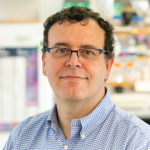Miguel Sena-Esteves, PhD
Director at Large (2024-27)
 My research work focuses on developing AAV gene therapy approaches for neurological diseases. My initial work focused on two lysosomal storage diseases GM1 gangliosidosis Tays-Sachs disease. These diseases are characterized by profound neurodevelopmental deficits and premature death.
My research work focuses on developing AAV gene therapy approaches for neurological diseases. My initial work focused on two lysosomal storage diseases GM1 gangliosidosis Tays-Sachs disease. These diseases are characterized by profound neurodevelopmental deficits and premature death.
Studies in mouse models were conducted in my laboratory and were followed by testing in cat and sheep models in collaboration with investigators at Auburn University. The remarkable results in large animal models provided a strong foundation for transition to phase I/II clinical trials. The AAV gene therapy clinical trials for GM1 gangliosidosis and Tay-Sachs disease, conducted at the NHGRI/NIH and UMass Chan Medical School, respectively, have been concluded and have shown promising results that support further development toward drug approval.
Based on this experience we created the Translational Institute for Molecular Therapies (TiMT) to developing therapies for ultra-rare diseases and assist other investigators in transitioning their programs from proof-of-concept studies to the clinic.
In addition to directing the TiMT, my laboratory continues to develop AAV gene therapies for neurological diseases including Huntington’s, Dravet syndrome, GNAO1-associated epilepsy and movement disorder, Rett syndrome, neurofibromatosis type 1, and brain tumors including GBM and DIPG.
The ultimate success in the AAV gene therapy for neurological diseases depends on development of better promoters with higher specificity and genes-appropriate expression levels as well as modifying AAV capsids to enhance in vivo gene delivery. These biological engineering endeavors are one of my passions that I continue to pursue given the impact they can have in the ultra-rare diseases space.